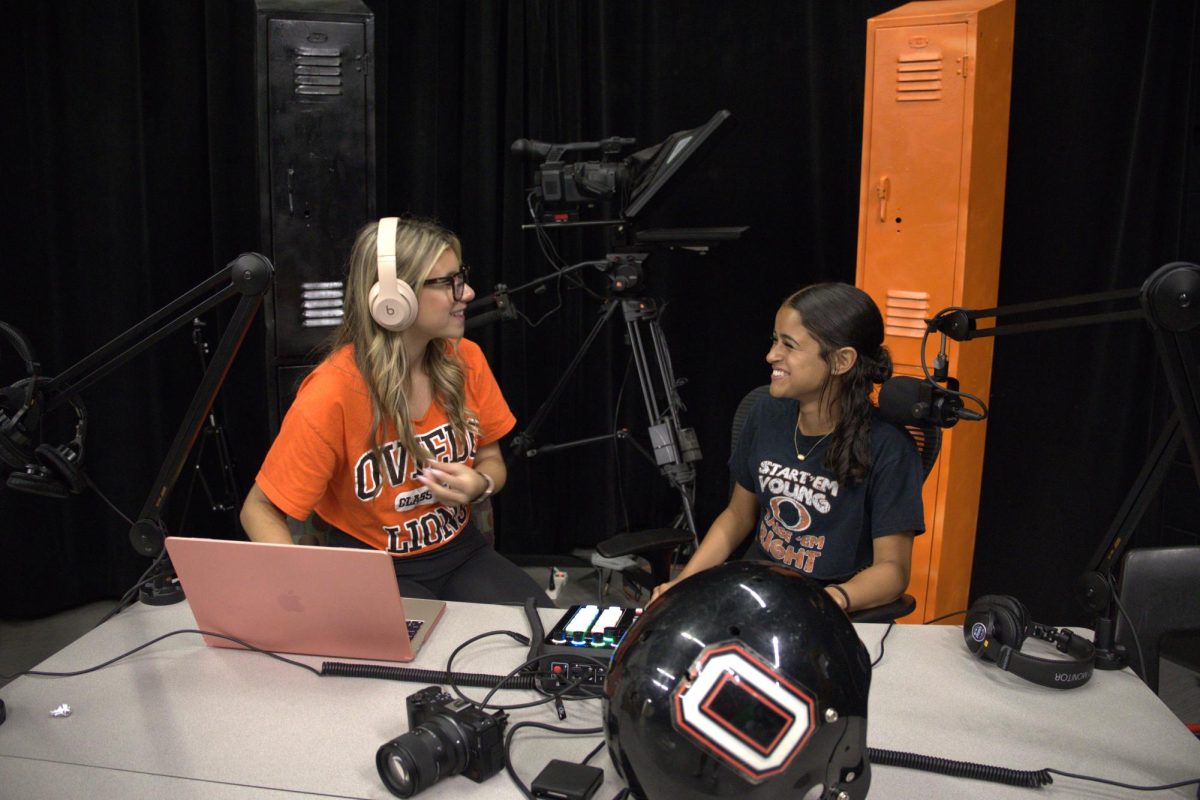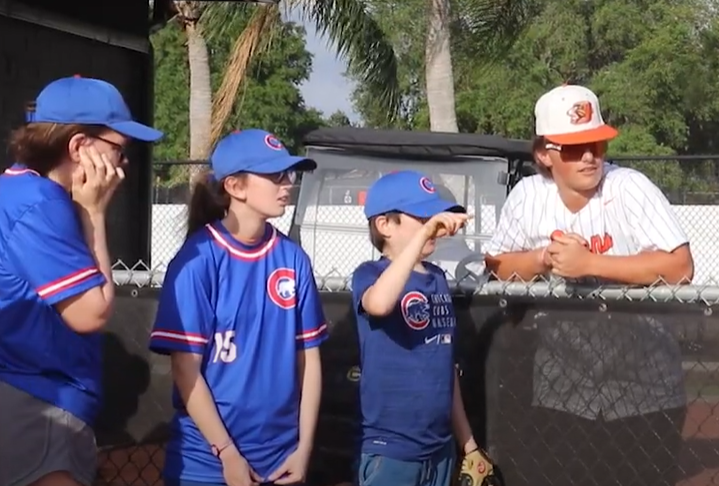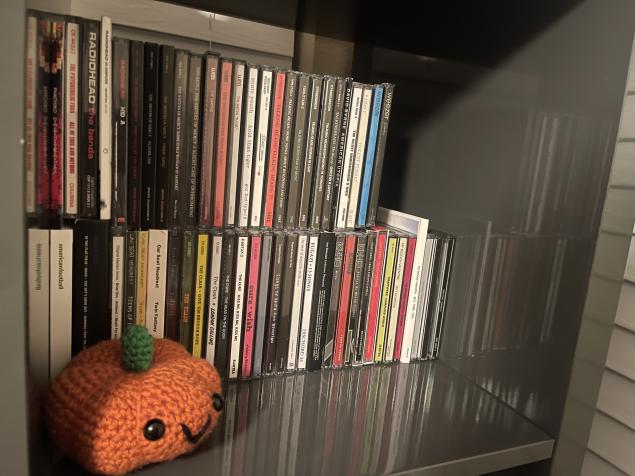Same as it ever was: how ASD dictates how I experience music
Audrey Choate’s compact disc collection, organized by alphabetical order and release date.
November 14, 2022
Music and its various genres are an almost-universal medium for expression and communication; the art form is appreciated across cultures and among individuals of all kinds. Indeed, the rhythmic arrangement of sounds is something that has been of utmost importance to countless people in the history of the human race. However, the perception of music can and does differ with background, demographic, ideologies, or mental condition. This is, for instance, why different people may prefer different types of music, as there is no objective basis for determining its quality (or that of any art medium.)
A particularly relevant example of this is the fact that music is often experienced radically differently by autistic people. This is not something that is negative or detrimental; in fact, it is an example of a positive impact of greater detail perception. While heightened sensitivity to sensory input is a hallmark of ASD and can lead to largely negative things, such as sensory overload, the trait itself can give rise to artistic proficiency and greater academic achievement. While I cannot speak for every autistic person, I believe that my current relationship to music would be almost completely foreign to me if I was neurotypical. I don’t think I would have a complete disinterest in music, to be clear, but I wouldn’t enjoy it with the same passion and fervor. It is also doubtful that I would utilize the same meticulous analysis in regards to seemingly trivial details in instrumental melodies or lyrics.
Describing how music sounds to me is an almost-impossible task, as the experience is so deeply subjective. Each note, each beat of percussion, and each melody come together to create an all-encompassing sea of sound and sensory experience, while still keeping their individualities intact. Every little detail in a piece of music is clear to me, especially if I have listened to it many times. I can often pick out subtle differences between different mastering of tracks and assess what makes each version enjoyable to me. I can tend to be annoyed if there is something ‘off’ about, for instance, a remastered track, even if I cannot quite put my grievance into words.
Much to the amusement of others at times, I tend to repeat songs over and over again, and I do not ever necessarily become tired of a particular track; I simply find another one to fixate on. In a given song, there is often a certain point in the song that is particularly fascinating to me, and I may repeat this part until I feel fulfilled. Oftentimes, these are points in the song in which the pattern of the instrumental changes, or the music blends together seamlessly.
I mostly enjoy music in terms of albums. Albums are collections of songs that often share some sort of unifying characteristic or story; this sort of organization makes the listening experience worth it. The gradual progression of a given album is also quite fascinating. In a concept album, it is a story to be told, often intended to be open to interpretation. In a conventional album, the songs may share some theme, ideology, or sound; the sound may change as the album progresses. Compilation albums are also quite fascinating; in a “best of,” for example, it is interesting to see how their music may have changed over time.
Lyrics are often enigmatic to me. While I can pick out particular syllables or sounds, I often have to read the lyrics to a song to know the words. Being unable to translate the sounds I hear in songs into words can cause frustration for me, as I understand a small amount but not enough to be satisfied. Due to this, I often enjoy music in foreign languages, music that is largely instrumental, music that is heavily distorted or noisy, or music that is very repetitive in its lyricism. I either want to understand all of it, or none of it.
For instance, one of my favorite bands, the German electronic group Kraftwerk, have semi-repetitive music largely centered on technology and how it relates to human communication. Perhaps I enjoy these slightly figurative songs about robots and computers largely because these metaphors put socialization in a context that is scientific, objective, and simple. (Or, perhaps, it’s not that complicated, and it’s just ‘more fun to compute.’)
While the Talking Heads were neither instrumental nor foreign, the unique perspective of many of their songs is very interesting to me. More specifically, I admire the unabashedly eccentric career of frontman David Byrne; or, more specifically, how he was able to ‘stop making sense.’ While Byrne was diagnosed with autism quite late in his adult life, his ASD undoubtedly influenced all aspects of his art. Humorously dubbing himself an ‘anthropologist from Mars,’ much of his work and persona is fixated on a perspective that is fundamentally outside of the paradigm of neurotypical human communication, which appeals to me greatly. (Same as it ever was!)
My collection of physical media also informs the way I consume music. To me, there is something about collecting compact discs, records, or audiocassette tapes that cannot be satisfied by streaming services alone. It is not just in regards to the sound quality (although, I do prefer the sound of music on vinyl or compact disc,) or aesthetic value. I love sorting my various albums and singles by various metrics, and seeing the way they fit together when I am finished. To hold the tangible manifestation of my greatest interest is something that cannot be replicated in any other way.












































